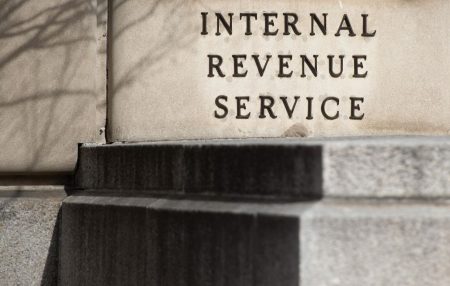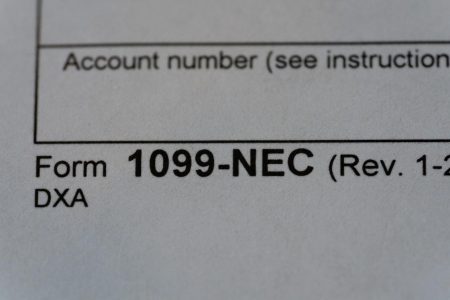Earlier this year, the Supreme Court granted the government’s application for a stay of a Texas ruling in the Fifth Circuit that had blocked the beneficial ownership interest (BOI) reporting requirements in the Corporate Transparency Act (CTA). That gave the impression that the government could again begin requiring businesses to comply—but another Texas court had issued a ruling that upended the government’s victory. The government has now appealed the second case—also in the Fifth Circuit. And this time, they’re suggesting that FinCEN would be willing to add a grace period for compliance.
How We Got Here
The case that made it to the Supreme Court is Texas Top Cop Shop, Inc., et al. v. Garland, et al. Last year, U.S. District Court Judge Mazzant from the Eastern District of Texas granted the request of the National Federation of Independent Business (NFIB) for a preliminary injunction, blocking the U.S. Department of Treasury from enforcing the CTA’s reporting requirements. Because NFIB and its nearly 300,000 members were a party to this case, the judge blocked enforcement of the BOI reporting requirements nationwide.
On December 17, on appeal, Mazzant ruled that a nationwide preliminary injunction barring FinCEN from enforcing the CTA would stand.
The government appealed the matter to the Fifth Circuit, which initially granted the government’s request to stay the injunction. Days later, however, a separate Fifth Circuit panel vacated the stay, blocking enforcement. That meant the ruling that stayed the injunction no longer applied, and the injunction was back in play.
Supreme Court And Smith
On December 31, 2024, the Department of Justice filed an application with the Supreme Court to put the brakes on the Texas Top Shop nationwide preliminary injunction that had barred the government from enforcing BOI reporting.
In the application for a stay of the injunction, the government argued that the Court “has traditionally applied a strong presumption that “Acts of Congress * * * should remain in effect pending a final decision on the merits by this Court.”
(A stay is a court order that stops a legal proceeding—it’s usually temporary.)
That’s exactly what happened. The stay put a halt on the injunction granted by the Fifth Circuit. That injunction had stopped the government from enforcing the CTA. The result should have been that the government could enforce the CTA while appeals made their way through the system.
But, as noted, there was a wrinkle: On January 7, 2025, a U.S. District Judge in Texas granted a preliminary injunction and stay that would prohibit FinCEN from enforcing the new law. In that case, Smith v. U.S., Judge Jeremy D. Kernodle, a 2018 Trump appointee, found that the plaintiffs “have demonstrated that the CTA and its implementing rule are likely unconstitutional, that they face a substantial risk of irreparable harm absent an injunction, and that the balance of equities and public interest support preliminary relief.” As a result, the court enjoined the government from enforcing the CTA against the Plaintiffs, Samantha Smith and Robert Means, and their related entities while the lawsuit continues.
The ruling, however, was bigger than that—the injunction purports to apply nationwide. In Smith, the plaintiffs moved for a stay (there’s that word again) of the reporting rule. Kernodle granted that motion, staying (temporarily stopping) the effective date of the reporting rule (the BOI rules found at 31 C.F.R. § 1010.380) while the lawsuit is pending.
FinCEN acknowledged the Smith ruling on Friday, posting on its website that a “separate nationwide order issued by a different federal judge in Texas (Smith v. U.S. Department of the Treasury) still remains in place” which means that “reporting companies are not currently required to file beneficial ownership information with FinCEN despite the Supreme Court’s action in Texas Top Cop Shop.”
Appeal
On February 5, 2025, the Department of Justice filed an appeal in Smith—the Texas court that interfered with its Texas Top Shop victory. The government also asked for a stay of the injunction while the matter is pending. The majority of the appeal is the same kinds of arguments that won the day at the Supreme Court—and the government noted as much, writing, “The same result is warranted here.”
But tucked inside the Motion to Stay Pending Appeal were surprise concessions, of sorts. Specifically, the government argued that FinCEN intends to extend the compliance deadline. A Treasury official confirmed that the extension would apply to all reporting companies for all reporting companies 30 days from the date the stay is granted.
The government also noted in its filing that during the 30 days, “FinCEN will assess whether it is appropriate to modify the CTA’s reporting requirements…”
What changes might be in store, exactly, are unclear. However, a Treasury official noted that “in keeping with Treasury’s commitment to reducing regulatory burden on businesses,” the agency would, during the 30-day period, “assess its options to modify further deadlines or reporting requirements for lower-risk entities, including many U.S. small businesses, while prioritizing reporting for those entities that pose the most significant national security risks.”
Other Court Rulings
Top Shop and Smith aren’t the only cases pending in the courts.
Earlier this year, U.S. District Judge Liles C. Burke of the Northern District of Alabama, Northeastern Division, found the CTA unconstitutional “because it exceeds the Constitution’s limits on Congress’ power.” The Alabama ruling resulted from a lawsuit filed by the National Small Business United (also known as the National Small Business Association, or NSBA) and Isaac Winkles, and bars the U.S. Treasury from enforcing the CTA against the Plaintiffs—members of the NSBA—but does not enjoin enforcement against others. The federal government has since appealed the case. Oral arguments were heard in the fall of 2024. A ruling could come any day.
In addition to National Small Business United v. Yellen, two other courts—the United States Court of Appeals for the Fourth Circuit (Community Associations Institute, et al. v. Yellen) and the United States Court of Appeals for the Ninth Circuit (Firestone et al v. Yellen)—also have CTA case appeals on their dockets. In both of those cases, the courts declined to issue a preliminary injunction on behalf of plaintiffs challenging the constitutionality of the CTA.
What It Means For Today
The motion is just that—a motion. Nothing has changed for businesses, and reporting remains voluntary. As of today, the message on FinCEN’s website still reads:
In light of a recent federal court order, reporting companies are not currently required to file beneficial ownership information with FinCEN and are not subject to liability if they fail to do so while the order remains in force. However, reporting companies may continue to voluntarily submit beneficial ownership information reports.
A Treasury official also confirmed that, “In the meantime, FinCEN is complying with—and will continue to comply with—the district court’s order for as long as it remains in effect. Reporting companies may continue to voluntarily submit beneficial ownership information reports, free of charge, using FinCEN’s E-Filing system. More information is available at fincen.gov/boi.”
Read the full article here










